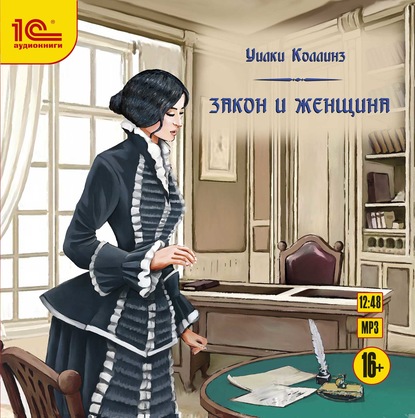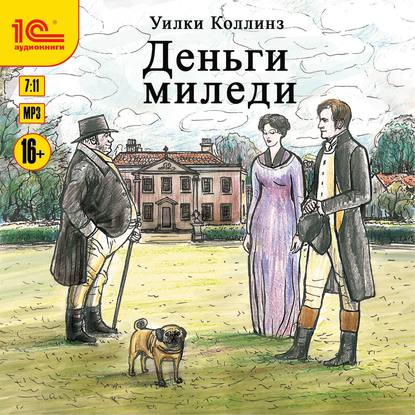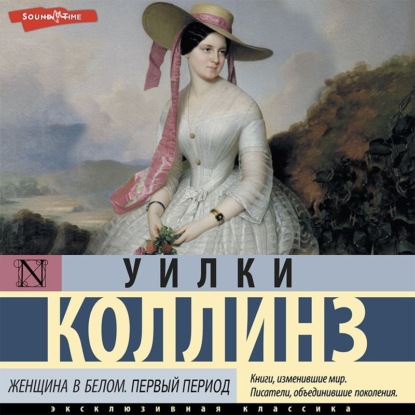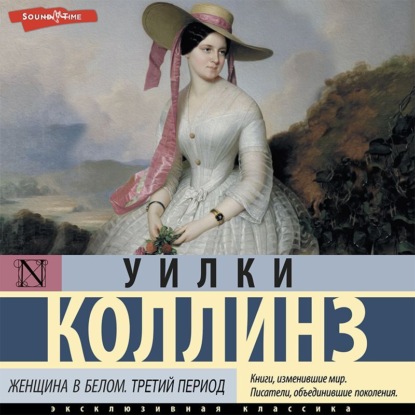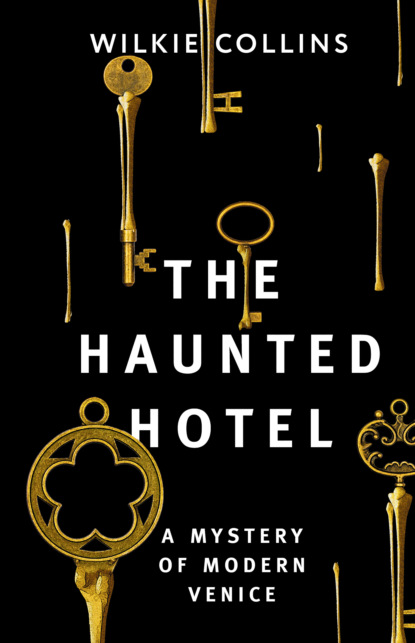
Полная версия
The Haunted Hotel: A Mystery of Modern Venice / Отель с привидениями: Тайна Венеции
Alone with Mrs. Ferrari, Mr. Troy permitted his natural kindness of heart to show itself on the surface at last. He tried to make his peace with the courier’s wife.
‘You have every claim, my good soul, to resent a reflection cast upon your husband,’ he began. ‘I may even say that I respect you for speaking so warmly in his defence. At the same time, remember, that I am bound, in such a serious matter as this, to tell you what is really in my mind. I can have no intention of offending you, seeing that I am a total stranger to you and to Mr. Ferrari. A thousand pounds is a large sum of money; and a poor man may excusably be tempted by it to do nothing worse than to keep out of the way for a while. My only interest, acting on your behalf, is to get at the truth. If you will give me time, I see no reason to despair of finding your husband yet.’
Ferrari’s wife listened, without being convinced: her narrow little mind, filled to its extreme capacity by her unfavourable opinion of Mr. Troy, had no room left for the process of correcting its first impression. ‘I am much obliged to you, sir,’ was all she said. Her eyes were more communicative-her eyes added, in their language, ‘You may say what you please; I will never forgive you to my dying day.’
Mr. Troy gave it up. He composedly wheeled his chair around, put his hands in his pockets, and looked out of window.
After an interval of silence, the drawing-room door was opened.
Mr. Troy wheeled round again briskly to the table, expecting to see Agnes. To his surprise there appeared, in her place, a perfect stranger to him-a gentleman, in the prime of life, with a marked expression of pain and embarrassment on his handsome face. He looked at Mr. Troy, and bowed gravely.
‘I am so unfortunate as to have brought news to Miss Agnes Lockwood which has greatly distressed her,’ he said. ‘She has retired to her room. I am requested to make her excuses, and to speak to you in her place.’
Having introduced himself in those terms, he noticed Mrs. Ferrari, and held out his hand to her kindly. ‘It is some years since we last met, Emily,’ he said. ‘I am afraid you have almost forgotten the “Master Henry” of old times.’ Emily, in some little confusion, made her acknowledgments, and begged to know if she could be of any use to Miss Lockwood. ‘The old nurse is with her,’ Henry answered; ‘they will be better left together.’ He turned once more to Mr. Troy. ‘I ought to tell you,’ he said, ‘that my name is Henry Westwick. I am the younger brother of the late Lord Montbarry.’
‘The late Lord Montbarry!’ Mr. Troy exclaimed.
‘My brother died at Venice yesterday evening. There is the telegram.’ With that startling answer, he handed the paper to Mr. Troy.
The message was in these words:
‘Lady Montbarry, Venice. To Stephen Robert Westwick, Newbury’s Hotel, London. It is useless to take the journey. Lord Montbarry died of bronchitis, at 8.40 this evening. All needful details by post.’
‘Was this expected, sir?’ the lawyer asked.
‘I cannot say that it has taken us entirely by surprise,’ Henry answered. ‘My brother Stephen (who is now the head of the family) received a telegram three days since, informing him that alarming symptoms had declared themselves, and that a second physician had been called in. He telegraphed back to say that he had left Ireland for London, on his way to Venice, and to direct that any further message might be sent to his hotel. The reply came in a second telegram. It announced that Lord Montbarry was in a state of insensibility, and that, in his brief intervals of consciousness, he recognised nobody. My brother was advised to wait in London for later information. The third telegram is now in your hands. That is all I know, up to the present time.’
Happening to look at the courier’s wife, Mr. Troy was struck by the expression of blank fear which showed itself in the woman’s face.
‘Mrs. Ferrari,’ he said, ‘have you heard what Mr. Westwick has just told me?’
‘Every word of it, sir.’
‘Have you any questions to ask?’
‘No, sir.’
‘You seem to be alarmed,’ the lawyer persisted. ‘Is it still about your husband?’
‘I shall never see my husband again, sir. I have thought so all along, as you know. I feel sure of it now.’
‘Sure of it, after what you have just heard?’
‘Yes, sir.’
‘Can you tell me why?’
‘No, sir. It’s a feeling I have. I can’t tell why.’
‘Oh, a feeling?’ Mr. Troy repeated, in a tone of compassionate contempt. ‘When it comes to feelings, my good soul-!’ He left the sentence unfinished, and rose to take his leave of Mr. Westwick. The truth is, he began to feel puzzled himself, and he did not choose to let Mrs. Ferrari see it. ‘Accept the expression of my sympathy, sir,’ he said to Mr. Westwick politely. ‘I wish you good evening.’
Henry turned to Mrs. Ferrari as the lawyer closed the door. ‘I have heard of your trouble, Emily, from Miss Lockwood. Is there anything I can do to help you?’
‘Nothing, sir, thank you. Perhaps, I had better go home after what has happened? I will call to-morrow, and see if I can be of any use to Miss Agnes. I am very sorry for her.’ She stole away, with her formal curtsey, her noiseless step, and her obstinate resolution to take the gloomiest view of her husband’s case.
Henry Westwick looked round him in the solitude of the little drawing-room. There was nothing to keep him in the house, and yet he lingered in it. It was something to be even near Agnes-to see the things belonging to her that were scattered about the room. There, in the corner, was her chair, with her embroidery on the work-table by its side. On the little easel near the window was her last drawing, not quite finished yet. The book she had been reading lay on the sofa, with her tiny pencil-case in it to mark the place at which she had left off. One after another, he looked at the objects that reminded him of the woman whom he loved-took them up tenderly-and laid them down again with a sigh. Ah, how far, how unattainably far from him, she was still! ‘She will never forget Montbarry,’ he thought to himself as he took up his hat to go. ‘Not one of us feels his death as she feels it. Miserable, miserable wretch-how she loved him!’
In the street, as Henry closed the house-door, he was stopped by a passing acquaintance-a wearisome inquisitive man-doubly unwelcome to him, at that moment. ‘Sad news, Westwick, this about your brother. Rather an unexpected death, wasn’t it? We never heard at the club that Montbarry’s lungs were weak. What will the insurance offices do?’
Henry started; he had never thought of his brother’s life insurance. What could the offices do but pay? A death by bronchitis, certified by two physicians, was surely the least disputable of all deaths. ‘I wish you hadn’t put that question into my head!’ he broke out irritably. ‘Ah!’ said his friend, ‘you think the widow will get the money? So do I! so do I!’
Chapter VII
Some days later, the insurance offices (two in number) received the formal announcement of Lord Montbarry’s death, from her ladyship’s London solicitors. The sum insured in each office was five thousand pounds-on which one year’s premium only had been paid. In the face of such a pecuniary emergency as this, the Directors thought it desirable to consider their position. The medical advisers of the two offices, who had recommended the insurance of Lord Montbarry’s life, were called into council over their own reports. The result excited some interest among persons connected with the business of life insurance. Without absolutely declining to pay the money, the two offices (acting in concert) decided on sending a commission of inquiry to Venice, ‘for the purpose of obtaining further information.’
Mr. Troy received the earliest intelligence of what was going on. He wrote at once to communicate his news to Agnes; adding, what he considered to be a valuable hint, in these words:
‘You are intimately acquainted, I know, with Lady Barville, the late Lord Montbarry’s eldest sister. The solicitors employed by her husband are also the solicitors to one of the two insurance offices. There may possibly be something in the report of the commission of inquiry touching on Ferrari’s disappearance. Ordinary persons would not be permitted, of course, to see such a document. But a sister of the late lord is so near a relative as to be an exception to general rules. If Sir Theodore Barville puts it on that footing, the lawyers, even if they do not allow his wife to look at the report, will at least answer any discreet questions she may ask referring to it. Let me hear what you think of this suggestion, at your earliest convenience.’
The reply was received by return of post. Agnes declined to avail herself of Mr. Troy’s proposal.
‘My interference, innocent as it was,’ she wrote, ‘has already been productive of such deplorable results, that I cannot and dare not stir any further in the case of Ferrari. If I had not consented to let that unfortunate man refer to me by name, the late Lord Montbarry would never have engaged him, and his wife would have been spared the misery and suspense from which she is suffering now. I would not even look at the report to which you allude if it was placed in my hands-I have heard more than enough already of that hideous life in the palace at Venice. If Mrs. Ferrari chooses to address herself to Lady Barville (with your assistance), that is of course quite another thing. But, even in this case, I must make it a positive condition that my name shall not be mentioned. Forgive me, dear Mr. Troy! I am very unhappy, and very unreasonable-but I am only a woman, and you must not expect too much from me.’
Конец ознакомительного фрагмента.
Текст предоставлен ООО «ЛитРес».
Прочитайте эту книгу целиком, купив полную легальную версию на ЛитРес.
Безопасно оплатить книгу можно банковской картой Visa, MasterCard, Maestro, со счета мобильного телефона, с платежного терминала, в салоне МТС или Связной, через PayPal, WebMoney, Яндекс.Деньги, QIWI Кошелек, бонусными картами или другим удобным Вам способом.





